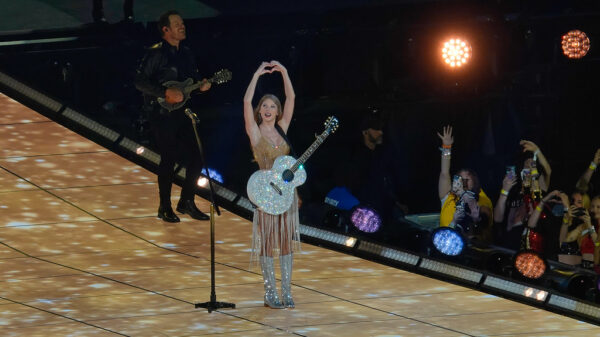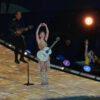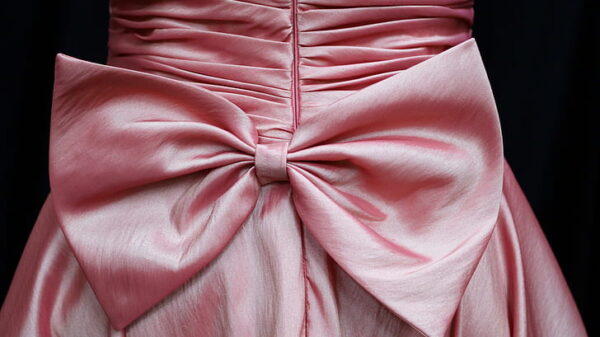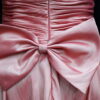Culture Editor Nia Simeonova interviews Vasko Vassilev about his upcoming role as concertmaster for the coronation of King Charles III and about his life as a world-class violinist.
Vasko Vassilev is the most famous Bulgarian violinist. He was born in Sofia in 1970. He first played with the Sofia Philharmonic Orchestra at the age of eight. At the age of ten, he went on to study at the Moscow Conservatory, later he trained at the Guildhall School of Music and Drama and the Royal College of Music. In 1993, at the age of just 23, he became the first musician to hold the position of Concert Master of the Royal Opera House – a position he holds to this day. In 2005, he made his conducting debut at the Royal Albert Hall. Today, as he is preparing for one of the most exciting events in his career, I got the chance to ask him some of the burning questions I am curious about!
Roar: Hello, Mr Vassilev! For us at Roar, it’s a real pleasure and honour to have this interview, especially before your leading role at King Charles III’s Coronation on 6 May. Thank you for your time and attention! We hope you’ll also find it interesting to answer our questions.
R: It makes sense that we start with the upcoming event which is of worldwide importance–have you ever dreamed of playing first violin at the Royal Coronation and how did you react when you found out about this opportunity?
Vassilev: No, I have never dreamt of this – as an ordinary person, I don’t really think of my life in a historical context–I just do my job. At the beginning of my career, I played at quite a few events attended by people who changed the course of history at one point or another. It turned out that I’ve lived long enough to see the shift of a number of political systems, each with a serious political leader. The Royal Coronation is a worldwide moment of history being made and it will be a great honour for me as a musician to be part of it. When I got the invitation I was in Spain – I was thrilled, I felt flattered and highly valued, but at the same time, it immediately dawned on me what an immense responsibility being chosen brings.
R: So I presume the honour of playing at the Coronation comes hand-in-hand with a heavy rehearsal schedule. What does a normal day of yours look like before the Coronation?
V: Now, to be honest with you I have signed a non-disclosure agreement and I cannot share too much about the Coronation… All the information about the ceremony is coordinated by a big team of professionals and specialists in royal protocol and communication. What I can say, however, is that we already had one big rehearsal and in the week before the coronation my colleagues and I will be practically inseparable.
When I got the invitation to lead the orchestra I already had engagements in Spain, Poland and here, in England. The first thing I had to do before I accepted was to make sure that it was possible to rearrange those so that nobody would be affected by the change. Even though playing the violin is officially a creative enterprise, my (professional) schedule as a musician is one rather colourful Excel sheet where my life is planned by the minute. Usually, it’s a never-ending series of flights, trains, rental cars, hotels, meetings, rehearsals and concerts in different parts of the world.
R: You have been the concertmaster at the Royal Opera House for many years now and you have already met King Charles III. As far as we know, he is taking an active part in the selection of musical pieces to be performed at the coronation. What can you tell us about him?
V: As I said, I’m afraid I can only disclose what is already officially known.
R: Your work with so many musicians from all over the world must be truly vibrant. Can you tell us a little bit about what goes on behind the curtains? What don’t we know about orchestras?
V: A wonderful question! An orchestra is like a family, like a real wholesome family. In our relationships, one could find everything that can happen in the life of a family. My work as a concertmaster includes having more responsibilities – on a professional, but also, inevitably, on a personal level. I know my colleagues very well, I even know the families of many of them, I know their worries and thrills… Like in every family, there are many different life situations but just like in every other family – we know that we can rely on each other. Music is a team sport and one needs to master a fine balance –not only as a technical performance but with patience, psychological understanding and communication.
R: You’ve played the violin since you were five years old. What have been the greatest challenges in your career and how did you overcome them?
V: Now that I think about it, all the challenges have had to do with some trivial logistical aspect like getting somewhere on time or tackling some new and unfamiliar musical piece. I have never had major problems to overcome. The reason for that, at least to some extent, lies in the fact that I consciously chose for my life to revolve around music and from there, everything else, sort of, fell into place. I let the various opportunities guide me. I have never had big plans or goals – rather, my dreams caught up with me and I just walked side-by-side with them.
R: Has the way you perceive music changed in any way throughout the years and how do you preserve your love for it?
V: I don’t think it has… My curiosity is only growing stronger because I listen to many really versatile genres. I love going to concerts which are not classical and I love thinking about music outside the frame, with no rules and expectations. I really like artists like Sting, Elton John, Manu Chao, Plácido Domingo, Chambao, The Rolling Stones, and Adele. A very special place in my ranking of talented people is reserved for Michael Jackson, with whom I had the honour of working for a short time and it was the experience of a lifetime. I cannot imagine my life without music at all.
R: And what goes through your mind while you’re playing?
V: Pictures. I see the music coming out of my violin as if it were a movie. I have images in my mind for each music piece. I see certain scenes and details with which I associate each theme. Sometimes my imagination is provoked by real-life facts, for example, what kind of person the composer who wrote the piece is, the times in which they lived, and what inspired them. Other times, I build a completely new and personal vision of it, based on the feelings that the particular music piece invokes in me.
R: You’ve lived in London since 1988 and are always on the move, all over the world, but you’re originally from Sofia, Bulgaria. On the 6 May you’ll be playing at the Coronation and on the 30th of the same month you’re beginning your tour of Bulgaria. I even have a ticket to your concert in Sofia on the 13 June! And then you’re off to Japan… What role has your Bulgarian background played throughout the years and do you miss something about Bulgaria?
V: Precisely! That’s what May and June look like for me this year – London, Vratsa, Vidin, Montana, Sevlievo, Gabrovo, Razgrad, Varna, Dobritch, Silistra, Kazanluck, Svilengrad, Kurdzhali, Haskovo and Sofia, then Tokyo and Valencia… My Bulgarian background has mattered mainly through my passport and the potential travel restrictions – visa requirements, extra interviews, etc. For me as a musician, it is very important to be able to travel freely, the opening of the borders happened in front of my eyes and it’s great that people your age don’t even know what I’m talking about! [Author note: Bulgaria was a socialist republic until 1989 and leaving the country used to be restricted.]
Apart from that, I think ever since I was little, I’ve learned to be something of a chameleon–to dissolve in my surroundings. I have never felt painfully attached to any place in particular but I’ve got the wild strawberries from the Rhodope Mountains, Rila’s crystal-clear air with a tinge of pine trees and the saltiness of the sea cliffs around Tsarevo running in my blood. In a moment I can feel the lush scent of home-grown tomatoes that people usually sell in crates in front of their village houses and of watermelons, plucked from the fields surrounding the country road. That is Bulgaria for me – freedom, serenity and perhaps an endless carefree childhood…
R: What is something you wish you’d known earlier–at the beginning of your career? We’d love to hear your advice for young people.
V: I just realised that I must have grown up since someone is asking me for advice… Actually, I don’t think I would change anything – I’ve followed my intuition, I haven’t deprived myself of any adventures, to some extent I have used music as my alibi to do whatever I wanted to and I have formed wonderful friendships in the process. So what should I say? Abide by your principles, listen to your heart, take responsibility for everyone and everything you love and go forward with courage. Nothing can go terribly wrong if you do it with love!
R: What is one thing that makes you hopeful for the future (and maybe something specifically for Bulgaria’s future–I can’t help but ask…)
V: The good news is that no matter how much we wallow in despair and worry about every other thing, in the end, there will always be young people with fresh ideas and enough energy to change the world. Our hope is in you!
Roar would again like to thank Mr Vassilev for his time. We wish him the best of luck for the Coronation and in all future endeavours.
This interview was originally conducted in Bulgarian on 18 April 2023.


















